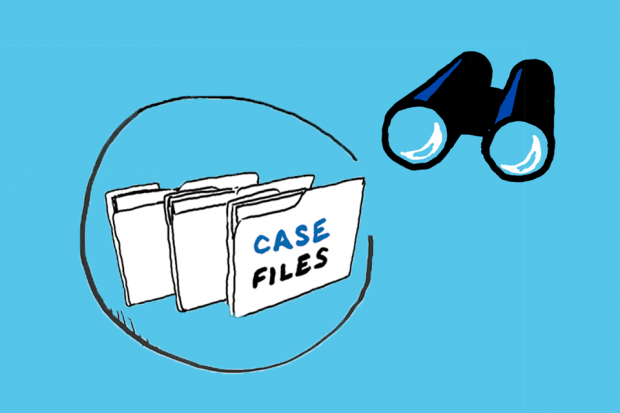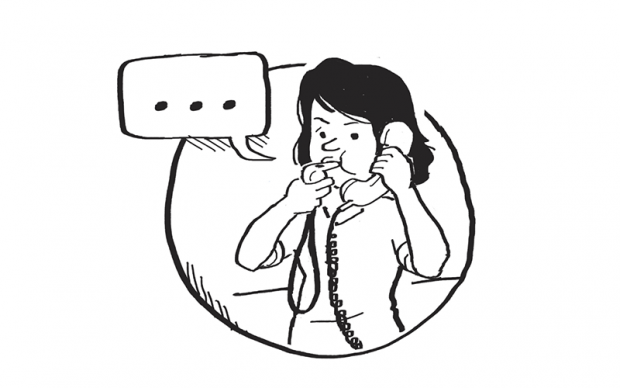
As a principal investigation officer at the CMA, I work to investigate illegal cartel activity. Those involved in cartels will often go to great lengths to ensure they go undetected. Therefore, we have a number of tools at our disposal to expose them, such as gathering covert intelligence or turning up at company offices to search them unannounced.
In this blog, I’ll provide some insight into this key area of our work by discussing some of the different stages of an investigation. I’ll also explore the types of things we might need to consider and act upon along the way.
The start of an investigation
There are several ways we can be alerted to suspicious activity. This can happen from our own intelligence gathering activities, an anonymous tip-off or companies or individuals applying for leniency.
It’s worth noting that in the case of a tip-off from a whistle-blower who wishes to remain anonymous, those investigating the case will not meet the person or know who they are. Instead, the person will interact with specially trained officers from the CMA’s intelligence team who are independent of the case team and will ensure that the identity of the whistle-blower is kept confidential. We will not be able to rely on what the whistle-blower has told us in any enforcement action. Whatever they tell us will help us to know where to look for evidence, but the case team will have to find this for themselves as part of their investigation.

If the information has come from a leniency applicant we’ll also want to gather evidence for ourselves, but we will not treat the applicant as an anonymous intelligence source. The identity of the applicant will be known to the case team and, as a condition of their leniency, the applicant can be asked to provide evidence, including by acting as a witness.
In each case we’ll have to decide on a strategy that considers the following:
- what further information can be obtained before launching a formal investigation
- whether we need to use covert intelligence gathering techniques (for example, surveillance or obtaining data relating to communications between suspected individuals)
- what the key points are that require investigation
- how we can get the best evidence
- the investigation tools available to us
If we do decide to launch a formal investigation, one of the main tasks will be preparing for and using our formal investigation powers. Let’s take a closer look at what those powers are.
Getting underway
As the CMA, we have a number of investigatory tools at our disposal. We can:
- turn up and search company offices unannounced and request information and documents (also known as ‘dawn raids’)
- search the home addresses of individuals if we suspect that there will be relevant documents there
- interview people, either using compulsory interview powers or on a voluntary basis
- compel companies or individuals to give us information or documents
We may do some or all these things during an investigation.

This can result in an awful lot of material that needs processing and reviewing. One way our teams overcome this challenge is through the use of sophisticated review software and techniques. Digital evidence review software can help us trawl through thousands of documents, identifying crucial bits of evidence, key people and any gaps in the evidence. Other investigative steps will arise from the evidence review, which may include conducting further interviews, gathering more evidence and possibly additional site visits.
Reaching the right result
If we’re confident we have enough evidence to prove illegal activity has taken place, we’ll send the businesses involved a Statement of Objections. This is a document which outlines the CMA’s initial findings in the cartel investigation and gives the parties an opportunity to reply. After this, the case may proceed to a final published CMA decision.
In criminal cases, we will also carry out an assessment on whether there are sufficient grounds for any individual to be charged and prosecuted. If prosecuted, individuals have a chance to respond to the allegations, and then the case will go to a criminal trial at the Crown Court.
We can also apply to the court for the directors of companies guilty of cartel behaviour to be disqualified from acting as company directors for up to 15 years.
A recent example of our enforcement activity is a case we completed in the office fit-out sector. We investigated six companies engaged in illegal bid-rigging, resulting in fines of over £7 million. On the back of this, we acted swiftly to disqualify 6 directors for periods of between 18 months and 5 years.
To learn more, visit our collection of case studies for examples of cases we’ve taken action on.
Moving forward
We won’t hesitate to use the tools and powers at our disposal to ensure that cartels are uncovered and tackled wherever they appear.
We’ve also made it easier to report suspected cartel activity. Read our blog on what to expect when you report a cartel or visit our 'Cheating or Competing?' website for information on how to spot and report cartels.
If you have information about a suspected cartel, you can contact the CMA by using our online form, calling the cartels hotline on 020 3738 6888 or emailing cartelshotline@cma.gov.uk.
5 comments
Comment by Angela Taylor posted on
So why, after all the adverse publicity and complaints about the holiday park industry are the CMA not investigating them?
Comment by Mike murray posted on
When do you intend to examine the holiday park sector where every park owner or company carries out restrictive trade practices ensuring the prices are fixed and the consumer has no freedom of choice. By my understanding this is a cartel.
As an example the supply and fitting of caravan decking is restricted to approved contractors and quotations and prices are organised by the caravan park.
Also gas appliance servicing, where only the park's approved contractor(s) is/ are allowed to carry out the work and prices are fixed across the board.
Comment by Andy Oates posted on
How about you start looking into one of the largest cartels in the the UK…..Holiday Home Sites and Park industry. These people are ripping off thousand and thousand of people continually and with the staycation being hot topic at the moment it’s only getting worse. Why don’t the CMA look into this as a matter of urgency as for some reason it’s one they continue to ignore
Comment by David Graham posted on
All well and good. There is a rather larger Cartel rhe CMA seem reluctant to take on.
Holiday parks.
Thousands lied to bullied
threatened ripped off.
Parks monopolise services and providers numerous ways used to exploit vulnerable and elderly and the CMA remains silent... why?
Comment by Kayla W posted on
Funny how holiday home complaints are disappearing from this blog.....what happened to free speech and telling it as it is. You the CMA have and are doing nothing to stop continual corruption within the caravan and park industries. It needs rinsing out totally and legislation put in place to stop unscrupulous charlatans from ripping us caravan owners off. The rich are getting richer off of the back of people hard earned money and savings. In some cases borrowed money as they are promised the earth by salesman who just want their commission.
Covid refund offers have been a joke from companies with millions in the bank. Greed breeds greed. CMA you need to stop picking and chosing the jobs you do and flush our industry out. Do it now!